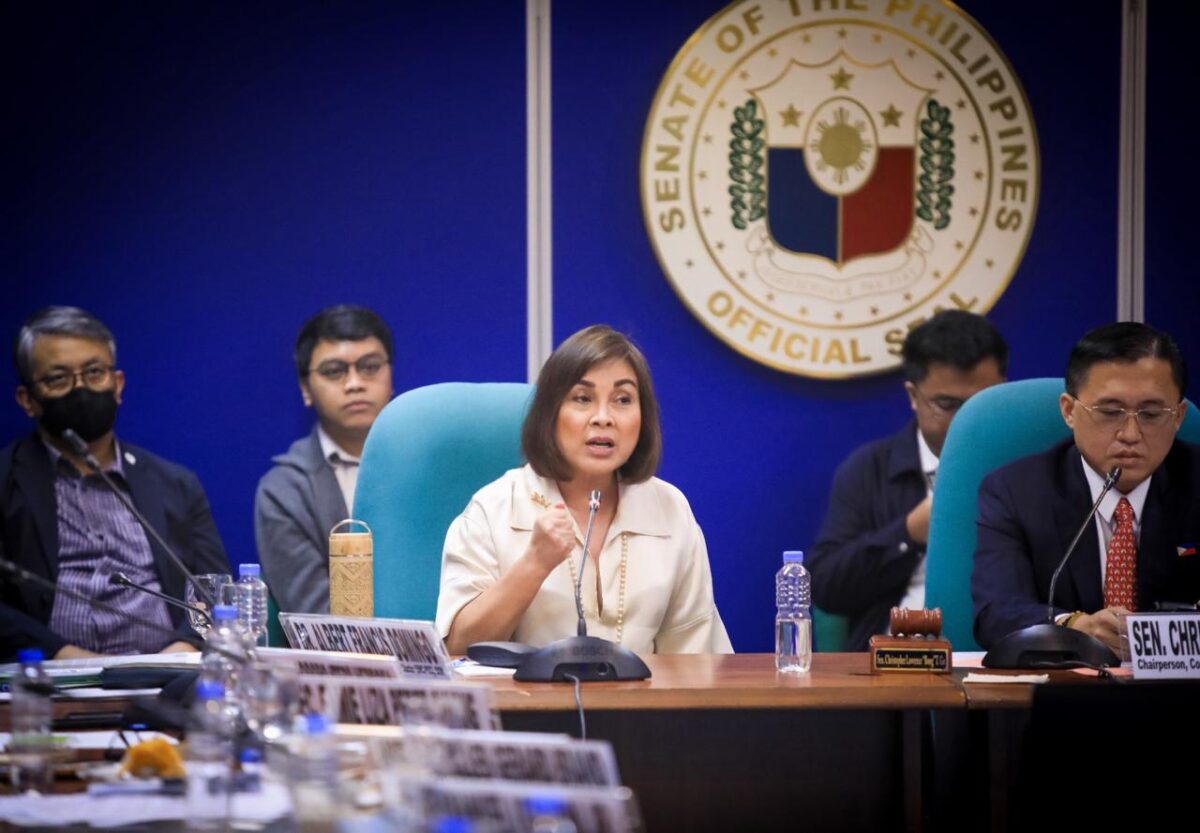Senator Loren Legarda has urged PhilHealth to prioritize the use of its surplus funds to expand benefit packages and address gaps in healthcare access to ensure the effective implementation of the Universal Health Care (UHC) Law.
Her statement came during a Senate committee on health hearing on December 18, where PhilHealth’s financial state and management were scrutinized following the removal of the P74-billion government subsidy in the 2025 proposed general appropriations.
This move leaves PhilHealth’s 2025 operation reliant on its surplus and reserve funds.
Legarda called on PhilHealth to make the most of its P150-billion surplus fund to support the goals of the UHC Law.
“With billions in reserves and surplus, PhilHealth has the resources to ensure every Filipino benefits from quality healthcare. But without proper implementation of the UHC Law, many will continue to face barriers to essential services,” the four-term senator said.
During the hearing, PhilHealth Senior Vice President Renato Limsiaco Jr. reported that the corporation has a total of P628.2 billion in assets as of October 2024, including P281 billion in reserves and P150 billion in surplus funds.
Despite the removal of the government subsidy, PhilHealth’s Corporate Operating Budget (COB) for 2025 is set at P284.1 billion — almost a 10 percent increase from the P259 billion allocated for 2024.
Of the total budget, P271 billion will be dedicated to benefit expenses, covering PhilHealth’s existing and expanded benefit packages. The funding will come from P203 billion in direct contributions, P20 billion from investments, and P48 billion from the surplus fund.
PhilHealth said the remainder of the surplus amount can be augmented should the P271 billion allotted for benefit expense in 2025 be exhausted.
Legarda emphasized the need to expand benefit packages to address the full spectrum of healthcare needs.
She directed PhilHealth to identify accredited Konsulta provider centers equipped with breast screening, ultrasound, and mammogram machines and to make this information publicly accessible.
“The UHC Law was enacted to ensure healthcare is accessible at the point of care,” Legarda said.
The hearing also tackled issues in healthcare accessibility.
“It is unacceptable for people to queue at multiple offices seeking assistance for hospital bills while billions sit unused,” Legarda said. She called for operational reforms, faster reimbursement processes, and prioritization of vulnerable sectors.
PhilHealth assured the Senate of its stability and capacity to sustain operations. The agency highlighted recent expansions in benefit coverage—30% in February and 50% in December 2024—allowing higher reimbursements for hospital bills.
Legarda did not mince words when addressing PhilHealth’s obligation to its members.
“PhilHealth is deducting from all of us while people are dying, asking for a guarantee letter, and going through a long process. Meanwhile, you are holding hundreds of billions in cash. The people must understand where their money is going,” she pointed out.
She also underscored the importance of universal healthcare as a right, not a privilege.
“The UHC Law was enacted to provide equitable healthcare for all Filipinos. PhilHealth must rise to the challenge and fulfill this promise. No Filipino should be left behind when it comes to healthcare,” she said.
Legarda’s call to action reflects the Senate’s commitment to holding PhilHealth accountable for the equitable and efficient use of its funds, ensuring that every Filipino has access to quality healthcare.
